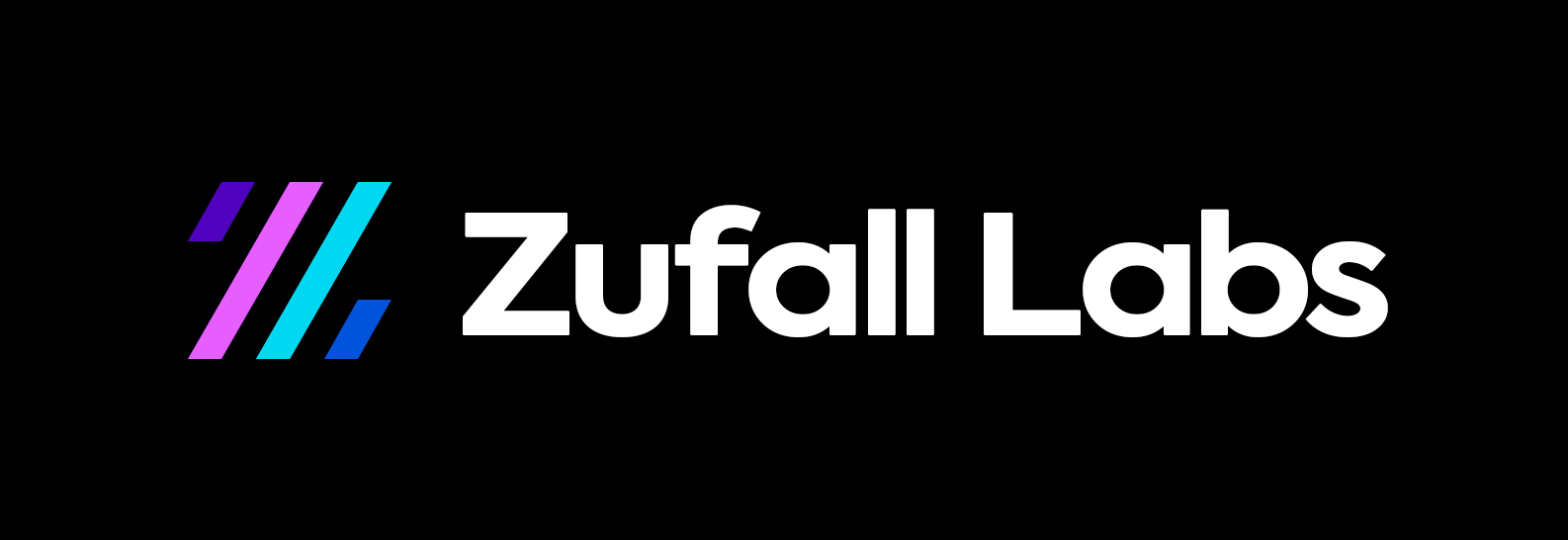🍀 Eden is an extensible project scaffolding CLI used for bootstrapping projects at Zufall Labs. Eden is supposed to be used with Nullpunkt, a project starter template enforcing QA policies.
# Using npx (no installation required)
npx eden init my-project
# Or install globally
npm install -g eden
eden init my-project# Create a new project
eden init [output]
# Create in current directory
eden init .
# Create with specific language and type
eden init my-project -l go -t fiber-api
eden init my-project -l java -t quarkus-api
# Show help
eden --helpWisp: REST API using Wisp framework
Fiber: REST API using Fiber frameworkCobra: Command-line application using Cobra
Quarkus: REST API using Quarkus framework
- Create a language directory in
templates/if it doesn't exist:
templates/
└── your-language/
└── language.yaml # Language metadata
- Add language metadata in
language.yaml:
name: "Your Language"
description: "Brief description of the language"- Create a directory for your template type:
templates/
└── your-language/
├── language.yaml
└── your-template/
├── template.yaml # Template metadata
└── files/ # Template files
- Configure
template.yaml:
name: "Your Template Name"
description: "What this template creates"
variables:
- name: "project_name" # Required
prompt: "Project name"
validate: "^[a-z][a-z0-9-]*$"
- name: "some_variable"
prompt: "Prompt for the variable"
default: "default value"
dependencies:
- "dependency1"
- "dependency2"
hooks:
pre_create:
- "command to run before creation"
post_create:
- "command to run after creation"- Add your template files in the
files/directory:
templates/
└── your-language/
└── your-template/
├── template.yaml
└── files/
├── src/
├── config/
├── README.md
└── ...
- Use
{{variable_name}}in your template files for variable substitution - Common variables:
{{project_name}}: Name of the project{{package_name}}: Package/module name (language-specific)- Custom variables as defined in your
template.yaml
templates/
├── go/
│ ├── language.yaml
│ ├── fiber-api/
│ │ ├── template.yaml
│ │ └── files/
│ └── cli/
│ ├── template.yaml
│ └── files/
├── java/
│ ├── language.yaml
│ └── quarkus-api/
│ ├── template.yaml
│ └── files/
└── your-language/
├── language.yaml
└── your-template/
├── template.yaml
└── files/
Create a new toolchain file in src/toolchains/your-language.ts:
import { exec } from 'child_process';
import { promisify } from 'util';
import { Toolchain } from '../types';
import { createLogger } from '../utils/logger';
import fs from 'fs/promises';
import path from 'path';
const execAsync = promisify(exec);
const logger = createLogger();
export class YourLanguageToolchain implements Toolchain {
name = 'your-language';
async validateEnvironment(): Promise {
try {
// Check for required tools
const { stdout } = await execAsync('your-language --version');
logger.info('Found Your Language:', stdout.trim());
// Check for additional tools if needed
// e.g., package managers, build tools, etc.
return true;
} catch (error) {
logger.error('Your Language is not installed or not in PATH', '');
return false;
}
}
async initialize(projectPath: string, options: Record): Promise {
// Set up project structure
// Initialize package manager
// Configure build tools
// Example:
try {
// Create necessary directories
await fs.mkdir(path.join(projectPath, 'src'), { recursive: true });
// Initialize package manager
await execAsync('your-package-manager init', { cwd: projectPath });
// Any language-specific initialization
} catch (error) {
throw new Error(`Failed to initialize project: ${error}`);
}
}
async installDependencies(projectPath: string): Promise {
try {
// Install dependencies using your package manager
// Example:
logger.info('Installing dependencies...');
await execAsync('your-package-manager install', { cwd: projectPath });
} catch (error) {
throw new Error(`Failed to install dependencies: ${error}`);
}
}
async setupTests(projectPath: string): Promise {
try {
// Set up test framework
// Create test directories
// Initialize test configuration
await fs.mkdir(path.join(projectPath, 'tests'), { recursive: true });
} catch (error) {
throw new Error(`Failed to setup tests: ${error}`);
}
}
}Update src/toolchains/index.ts to include your new toolchain:
import { GoToolchain } from './go';
import { JavaToolchain } from './java';
import { YourLanguageToolchain } from './your-language';
import { Toolchain } from '../types';
const toolchains: Record = {
go: new GoToolchain(),
java: new JavaToolchain(),
'your-language': new YourLanguageToolchain(),
};
export function getToolchain(language: string): Toolchain | undefined {
return toolchains[language];
}Your toolchain should handle:
-
Environment Validation
- Check for language runtime
- Verify required tools and versions
- Provide clear error messages for missing dependencies
-
Project Initialization
- Create necessary directory structure
- Initialize package manager/build tools
- Set up configuration files
- Handle platform-specific requirements
-
Dependency Management
- Install required packages
- Update lockfiles
- Handle different dependency types (dev, prod, etc.)
-
Test Setup
- Configure test framework
- Create test directories
- Set up test configuration files
-
Error Handling
- Provide descriptive error messages
- Clean up on failure
- Log appropriate debug information
- Clone the repository
- Link the CLI locally:
npm install
npm link- Test your template:
eden init test-project -l your-language -t your-template- Verify the generated project:
- Check file structure
- Ensure all variables are properly substituted
- Test build/run commands
- Validate any hooks run correctly
- Create a feature branch
- Add your template following the structure above
- Update this README with your template under "Available Templates"
- Create a pull request with:
- Description of the template
- Example usage
- Any special requirements or dependencies
- Screenshots/examples if applicable
- Node.js >= 18
- Language-specific requirements:
- Gleam: Gleam 1.1.0 or later
- Go: Go 1.21 or later
- Java: Java 17 or later and Gradle 8.5 or later



